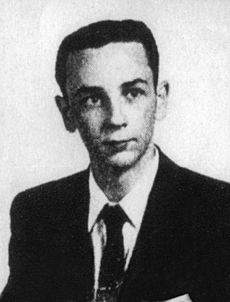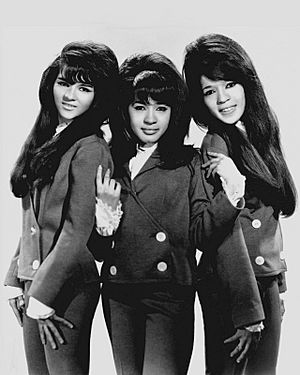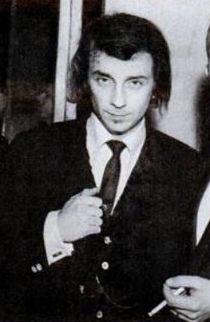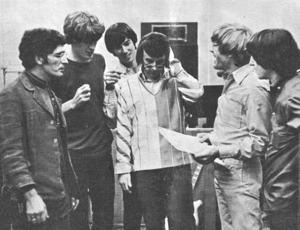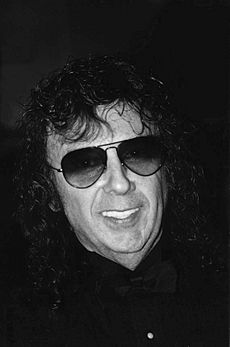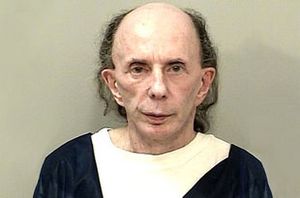Phil Spector facts for kids
Quick facts for kids Phil Spector |
|
|---|---|
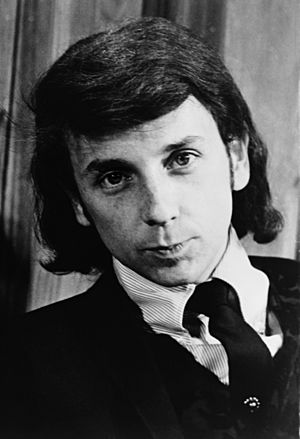
Spector in 1965
|
|
| Background information | |
| Birth name | Harvey Philip Spector |
| Also known as | Phil Harvey |
| Born | December 26, 1939 New York City, U.S. |
| Origin | Los Angeles, California, U.S. |
| Died | January 16, 2021 (aged 81) French Camp, California, U.S. |
| Genres | |
| Occupation(s) |
|
| Years active | 1958–2009 |
| Labels |
|
Harvey Phillip Spector (December 26, 1939 – January 16, 2021) was an American record producer and songwriter. He was famous for his new ways of recording music in the 1960s. Spector created the "Wall of Sound" technique. This style made music sound very full and rich, like a big orchestra. He called it a "Wagnerian" way to make rock and roll. Many people see him as one of the most important people in pop music history. He was also one of the most successful producers of the 1960s.
Spector was born in the Bronx, New York. As a teenager, he moved to Los Angeles. He started his music career in 1958 with a group called the Teddy Bears. He wrote their hit song "To Know Him Is to Love Him", which became number one in the U.S. In 1960, Spector learned from famous producers Leiber and Stoller. He then helped start Philles Records. At 21, he was the youngest person to own a record label in the U.S. He was known as the "First Tycoon of Teen". Spector was seen as the first "auteur" in music. This meant he had a lot of control over how his records were made. He produced music for groups like the Ronettes, the Crystals, and Ike & Tina Turner. He often worked with arranger Jack Nitzsche and engineer Larry Levine. The musicians who played on his records became famous as "the Wrecking Crew".
In the early 1970s, Spector produced the Beatles' album Let It Be. He also worked on solo records for John Lennon and George Harrison. By the mid-1970s, Spector had produced 18 songs that reached the Top 10 in the U.S. for different artists. His number one hits included "You've Lost That Lovin' Feelin'" by the Righteous Brothers, "The Long and Winding Road" by the Beatles, and "My Sweet Lord" by George Harrison. After working with artists like Leonard Cohen, Dion DiMucci, and the Ramones, Spector mostly stopped producing music.
Spector helped show that the recording studio itself could be an instrument. He also brought pop art ideas into music, creating art pop. He influenced genres like art rock and dream pop. He won a Grammy Award for Album of the Year in 1973 for Concert for Bangladesh. In 1989, he was added to the Rock and Roll Hall of Fame. In 1997, he joined the Songwriters Hall of Fame. Rolling Stone magazine ranked him number 63 on their list of the greatest artists in history in 2004. In 2009, after being mostly retired for 30 years, he was found guilty in a legal case. He was sentenced to prison and died there in 2021.
Contents
Early Life and Music Beginnings (1939–1959)
Childhood and Family Background
Harvey Philip Spector was born on December 26, 1939. He later added a second "l" to his middle name. His parents, Benjamin and Bertha Spector, were from a Russian-Jewish family in the Bronx, New York City. His father died in April 1949. In 1953, his mother moved the family to Los Angeles. She worked as a seamstress.
High School and First Band
Spector went to John Burroughs Junior High School. Then, in 1954, he moved to Fairfax High School. He learned to play guitar and performed in a talent show. He met other young musicians like Lou Adler and Bruce Johnston. Spector formed a group called the Teddy Bears with Sandy Nelson, Marshall Leib, and Annette Kleinbard.
Record producer Stan Ross taught Spector about making records. This greatly shaped Spector's own production style. In 1958, the Teddy Bears recorded "Don't You Worry My Little Pet". They then signed a deal for a few singles.
The Teddy Bears' Success
For their next recording, they made "To Know Him Is to Love Him". Spector wrote this song, inspired by his father's tombstone. It became number one on the Billboard Hot 100 chart on December 1, 1958. It sold over a million copies that year. After this success, the group signed with Imperial Records. Their next song, "I Don't Need You Anymore", reached number 91. They released more songs and an album, The Teddy Bears Sing!, but did not have another big hit. The group broke up in 1959.
Becoming a Producer (1959–1962)
Learning the Ropes
While recording with the Teddy Bears, Spector met Lester Sill. Sill was a mentor to famous producers Jerry Leiber and Mike Stoller. In 1960, Sill helped Spector get a job learning from Leiber and Stoller in New York. Spector helped write the Ben E. King hit "Spanish Harlem". He also played guitar on the Drifters' song "On Broadway".
Spector's first project as a producer was for Ronnie Crawford. He also produced songs for LaVern Baker and Ruth Brown. He produced the original version of "Twist and Shout" by the Top Notes. Leiber and Stoller suggested Spector produce Ray Peterson's "Corrine, Corrina", which reached number 9 in 1961. He also produced "Pretty Little Angel Eyes" for Curtis Lee, which reached number 7.
Starting Philles Records
Back in Hollywood, Spector agreed to produce one of Sill's groups, the Paris Sisters. Their song "Be My Boy" was turned down by other labels. So, Sill started a new label, Gregmark Records, and released it. It only reached number 56. But their next song, "I Love How You Love Me", was a hit, reaching number 5.
In late 1961, Spector started a record company with Lester Sill. They named it Philles Records, combining parts of their first names. Spector found three groups he wanted to produce. He signed the Crystals for his new label. Their first song, "There's No Other (Like My Baby)", was a success, reaching number 20. Their next song, "Uptown", reached number 13. Spector also produced "Second Hand Love" by Connie Francis in 1962, which reached number 7.
The Wall of Sound Era (1962–1965)
New Artists and Big Hits
In 1962, Spector worked for Liberty Records. There, he heard a song called "He's a Rebel" by Gene Pitney. This song was supposed to be released by Vikki Carr. But Spector quickly recorded his own version. He used Darlene Love and the Blossoms for the main vocals. This version was released on Philles, credited to the Crystals. It quickly became a number one hit.
After "He's a Rebel" became number one, Spector owned Philles Records by himself. He created a new group called Bob B. Soxx & the Blue Jeans. This group had hits like "Zip-a-Dee-Doo-Dah" (number 8). Spector also released solo songs by Darlene Love in 1963. In the same year, he released "Be My Baby" by the Ronettes, which reached number 2.
A Christmas Gift and The Righteous Brothers
Spector put a lot of effort into making an album for the 1963 Christmas season. He used all the artists on Philles Records and the Wrecking Crew. The album, A Christmas Gift for You from Philles Records, came out a few days after the assassination of President Kennedy.
In September 1963, the Ronettes performed at the Cow Palace. The Righteous Brothers were also there. Spector was so impressed with Bill Medley and Bobby Hatfield that he bought their contract. He signed them to Philles. In early 1965, "You've Lost That Lovin' Feelin'" became the label's second number one song. They had three more big hits: "Just Once in My Life" (number 9), "Unchained Melody" (number 4), and "Ebb Tide" (number 5). Even with these hits, Spector lost interest in producing the Righteous Brothers. He sold their contract to Verve Records.
Spector also started another small label called Phi-Dan Records. This label released songs by artists like Betty Willis and the Ikettes. Spector did not produce any of the songs on Phi-Dan. The song "Unchained Melody" became popular again 25 years later. It was used in the 1990 movie Ghost. This put Spector back on the U.S. Top 40 charts.
Later Career and Collaborations (1966–1973)
Ike & Tina Turner and a Break
Spector's last signing to Philles was Ike & Tina Turner in April 1966. Spector thought their song "River Deep – Mountain High" was his best work. However, it only reached number 88 in the United States. The song, which featured Tina Turner without Ike Turner, was a hit in Britain, reaching number 3.
Spector released another song by Ike & Tina Turner, "I'll Never Need More Than This". He then tried to move Philles to A&M Records in 1967. The deal did not happen. Spector then lost interest in his label and the music business. He became more private. He married Veronica "Ronnie" Bennett, the lead singer of the Ronettes, in 1968. Spector made brief appearances in a TV show, I Dream of Jeannie (1967), and the film Easy Rider (1969).
In 1969, Spector returned to music. He signed a production deal with A&M Records. A Ronettes song did not do well. But Spector had another hit with "Black Pearl" by Sonny Charles and the Checkmates, Ltd., which reached number 13.
Working with The Beatles and Solo Artists
In early 1970, Allen Klein, the new manager of the Beatles, brought Spector to England. Spector impressed them by producing John Lennon's solo song "Instant Karma!", which reached number 3. Lennon and George Harrison then asked Spector to finish the Beatles' album Let It Be. He used his production techniques to change the sound of some songs. The album was released after the Beatles broke up and topped the charts in the U.S. and UK. It also had the number 1 U.S. song "The Long and Winding Road". The song's composer, Paul McCartney, was upset by Spector's changes.
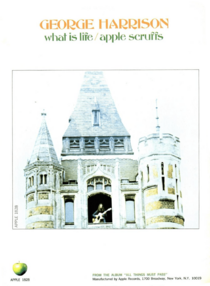
For Harrison's album All Things Must Pass (number 1, 1970), Spector helped create a big, orchestral sound. The album had two major hits: "My Sweet Lord" (number 1) and "What Is Life" (number 10). That same year, Spector also produced Lennon's Plastic Ono Band (number 6). This album had a simple sound, without the "Wall of Sound" style. Through Harrison, he also produced the first song by Derek and the Dominos, "Tell the Truth".
Spector became head of A&R for Apple Records. He held this job for one year. During this time, he produced Lennon's 1971 song "Power to the People" (number 11) and his album Imagine. The album's title track reached number 3. With Harrison, Spector produced "Bangla Desh" (number 23), which was one of the first charity singles.
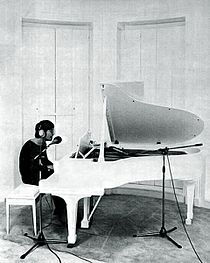
In 1971, Spector oversaw the live recording of the Concert for Bangladesh shows in New York City. This resulted in the number 1 triple album The Concert for Bangladesh. The album won "Album of the Year" at the 1973 Grammys. Spector used many microphones to create his "Wall of Sound" even for a live recording. Spector later said that working with Lennon and Harrison in the early 1970s was the most creative time of his career.
Lennon kept Spector for the 1971 Christmas song "Happy Xmas (War Is Over)" and the 1972 album Some Time in New York City (number 48). In late 1972, Apple re-released Spector's A Christmas Gift for You from Philles Records. This time, the album became very popular.
Later Years and Personal Life (1974–2021)
Health and Retreat from Music
As the 1970s went on, Spector became more private. In 1974, he was seriously hurt in a car crash in Hollywood. He was thrown through the car's windshield. He had serious head injuries and needed many stitches. This accident may have been why he started wearing unusual wigs later in life.
He started the Warner-Spector label with Warner Bros. Records. This label released new songs by Cher and Darlene Love. He also formed Phil Spector International in Britain. He released Dion DiMucci's Born to Be with You in 1975. In 1977, he released an American collection of his classic Philles recordings.
Working with Leonard Cohen and The Ramones
Spector started to work more in the late 1970s. He produced and helped write a 1977 album by Leonard Cohen, called Death of a Ladies' Man. Cohen felt the result was "grotesque" but also "semi-virtuous".
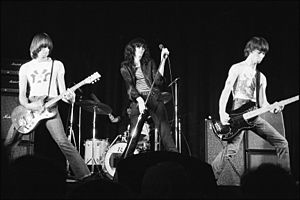
Spector also produced the Ramones album End of the Century in 1979. Some Ramones fans did not like its radio-friendly sound. However, it has some of their most famous songs, like "Rock 'n' Roll High School" and "Do You Remember Rock 'n' Roll Radio?". It also included their cover of Spector's song for the Ronettes, "Baby, I Love You". Guitarist Johnny Ramone said Spector's production worked well for slower songs like "Danny Says".
Inactivity and Final Projects
Spector was mostly inactive in the 1980s, 1990s, and early 2000s. In 1981, after John Lennon died, he briefly produced Yoko Ono's Season of Glass.
In 1989, Tina Turner inducted Spector into the Rock and Roll Hall of Fame. He was also inducted into the Songwriters Hall of Fame in 1997. He received the Grammy Trustees Award in 2000. In 1994, Spector wrote a letter against the Ronettes being inducted into the Rock and Roll Hall of Fame. He said they did not contribute enough to music. However, the Ronettes were inducted in 2007.
He tried to work with Céline Dion on her album Falling into You but had disagreements. His last released project was Silence Is Easy by Starsailor in 2003. He was supposed to produce the whole album but was fired. One of the two songs he produced, "the title track", was a UK top 10 hit.
Later Life and Death
On February 3, 2003, Spector was involved in a legal case at his mansion in Alhambra, California. He remained free on bail while awaiting trial. In the meantime, Spector produced a song called "Crying for John Lennon" by Hargo Khalsa.
His trial began on March 19, 2007. The judge allowed the trial to be shown on TV. On September 26, the judge declared a mistrial because the jury could not agree. A new trial began on October 20, 2008. On April 13, 2009, the jury found him guilty. He was sent to prison. He died in prison on January 16, 2021, at age 81. His daughter said he died from problems related to COVID-19.
Personal Life
Marriages and Children
Spector's first marriage was in 1963 to Annette Merar. She was the lead singer of the Spectors Three, a group he produced. They divorced in 1966.
Spector married Ronnie Bennett in 1968. He adopted a son named Donté Phillip Spector. As a Christmas gift, he surprised her by adopting twins, Louis Phillip Spector and Gary Phillip Spector. They divorced in 1974.
In 1982, Spector had twin children, Nicole Audrey Spector and Phillip Spector Jr., with his girlfriend Janis Zavala. Phillip Jr. died in 1991 from leukemia. On September 1, 2006, Spector married his third wife, Rachelle Short. They divorced in 2018.
Awards and Recognition
Spector is one of a few producers who had number one records in three decades: the 1950s, 1960s, and 1970s.
Awards and Nominations
| Year | Nominee / work | Award | Result |
|---|---|---|---|
| 1972 | George Harrison "My Sweet Lord" | Grammy Award for Record of the Year | Nominated |
| 1972 | George Harrison All Things Must Pass | Grammy Award for Album of the Year | Nominated |
| 1973 | George Harrison & Friends The Concert for Bangladesh | Grammy Award for Album of the Year | Won |
| 1989 | Phil Spector | Rock and Roll Hall of Fame | Inducted |
| 1997 | Phil Spector | Songwriter's Hall of Fame | Inducted |
| 2000 | Phil Spector | Grammy Trustees Award | Won |
Rankings
| Publication | Country | Accolade | Year | Rank | Ref |
|---|---|---|---|---|---|
| Rolling Stone | US | Greatest Artists of All Time | 2004, updated 2011 | 64 | |
| The Washington Times | US | Greatest Record Producers of All Time | 2008 | 2 |
|
See also
 In Spanish: Phil Spector para niños
In Spanish: Phil Spector para niños
 | May Edward Chinn |
 | Rebecca Cole |
 | Alexa Canady |
 | Dorothy Lavinia Brown |


